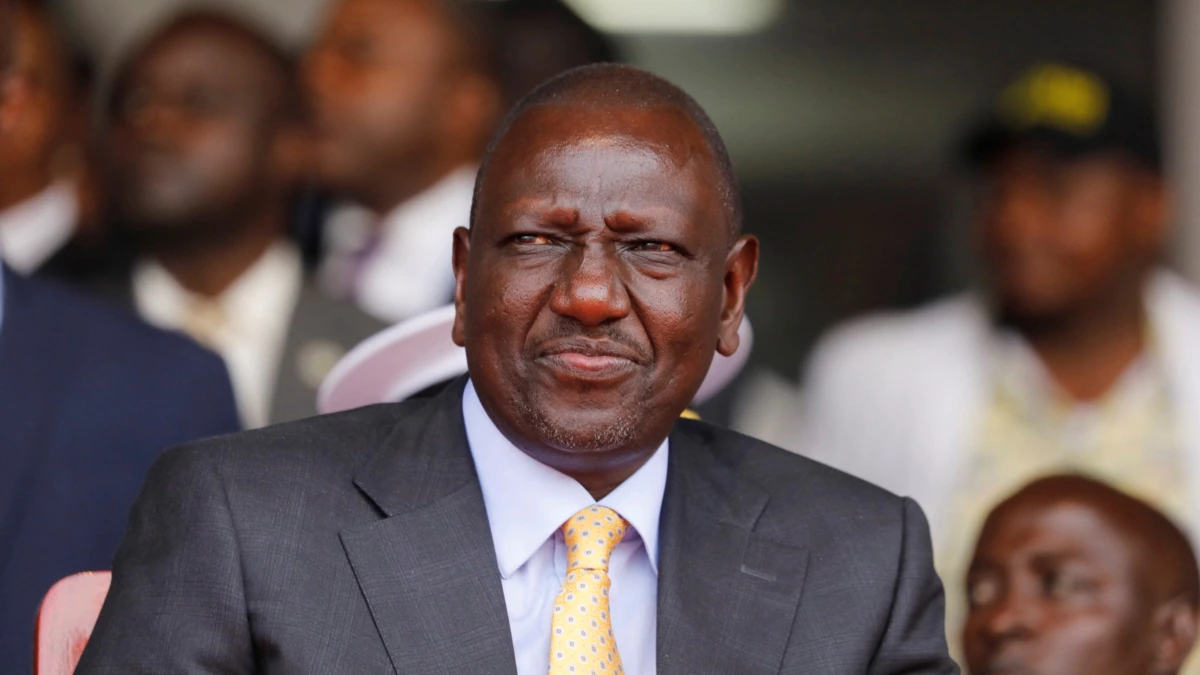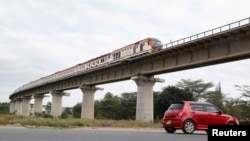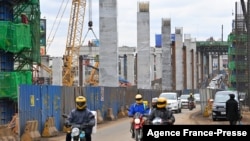Kenya’s newly elected President William Ruto, who talked tough on China while campaigning, has reversed his stance on Beijing since taking office.
“We cherish the robust friendship that Kenya enjoys with China. We will step up and expand these relations, on infrastructure, agriculture, education, among other broad array of issues for the mutual benefit of our countries,” Ruto said when he met with Liu Yuxi, China’s special representative on African affairs, shortly after taking office.
During his campaign, Ruto ran on an anti-China platform, vowing to deport Chinese nationals doing jobs he said should be reserved for Kenyans, promising to make opaque government contracts with Beijing public and pledging to cut borrowing.
Only a few months ago, at a June economic forum, Ruto was reported as saying, “Chinese nationals are roasting maize and selling mobile phones. We will deport all of them.”
The language of his new administration, however, contrasts sharply with the strident tones he used on the campaign trail.
Last week, National Assembly speaker Moses Wetangula met with Beijing’s ambassador to Kenya, Zhou Pingjian, and he assured him of Kenya’s continued cooperation.
“China is one of the most important national development partners for Kenya and has in the last decade extended considerable support to our infrastructure development,” he said in a statement. Wetangula also “assured him that the new administration of President William Ruto has no plans whatsoever to scale down” Kenya’s collaboration with Beijing.
“[I am] delighted that China is also seeking to further enhance our strategic economic partnership, and people-people relations,” he added.
China is Kenya’s biggest bilateral lender and has been responsible for major infrastructure projects, including the recently opened Nairobi Expressway and the controversial and expensive Chinese-built Standard Gauge Railway, which links the capital with the key port city of Mombasa.
Former President Uhuru Kenyatta had signed deals with Beijing on infrastructure projects to develop Kenya, resulting in Kenyan debt to China in the billions of dollars. Ruto was Kenyatta’s deputy. The two men had a falling out, and during the campaign Ruto made a point of trying to distance himself from his boss and alleged corruption.
‘More pragmatic’ situation
The about-face in the new administration’s position on China since taking office is a typical case of the reality of politics winning the day, according to analysts.
“It was entirely predicted and predictable that President Ruto would resile and soft-pedal on his initial Chinese comments,” Aly-Khan Satchu, a political economist in Nairobi, told VOA. “I think we’ve just returned to a more pragmatic policymaking situation. You can’t upset one of your biggest creditors.”
Adhere Cavince, an independent Kenyan analyst and China specialist, echoed this view, saying: “Whatever happened in the campaign doesn’t seem to hold a lot of water, especially now that he has won the seat and he has the responsibility to govern the country. Campaigning is quite different from governing and sometimes the dynamic drastically changes.
“It is clear that William Ruto does not intend to reduce or scale down cooperation between Kenya and China,” he added.
Cavince said a number of factors could account for the change of heart, including the fact there are 400 Chinese companies operating in the country employing tens of thousands of Kenyans, and China is the East African country’s biggest trading partner.
While a large trade imbalance exists between the two, China has made efforts recently to offset them, allowing more exports from Kenya, including of the country’s avocados.
There are also growing cultural ties between the two, with more and more young Kenyans going to China to study, Cavince said.
And he noted it’s not only about Kenya needing China.
“Kenya presents a very formidable gateway into the east and central Africa regions, the markets. … There’s an incentive for China to court Kenya, so it is not a one-way street,” he said.
Chinese President Xi Jinping sent Ruto a message of congratulations shortly after he won the election in August.
“I attach great importance to the development of China-Kenya relations and stand ready to work with President Ruto to advance the development of the China-Kenya comprehensive strategic cooperative partnership to the benefit of the two countries and two peoples,” said China’s leader.
One policy reversal
There’s one election promise Ruto was swift to keep and put into motion, though, despite the fact it could prove unpopular with Beijing. He reversed one of his predecessor’s most controversial policies.
During his presidency, Kenyatta had transferred cargo-clearing operations to the Nairobi and Naivasha inland container depots from the coastal city of Mombasa.
Traders had to use the Chinese-built Standard Gauge Railway (SGR) to ferry goods to Nairobi and Naivasha, with the government saying it was a faster way of transporting goods and would decongest the port of Mombasa.
Some say Kenyatta’s move was motivated by the need to boost traffic on the railway and drive revenue for debt repayment to China. His decision cost thousands of jobs in Mombasa, but with Ruto’s reversal of the policy, critics worry the debt repayment burden for the $3.6 billion SRG will now fall on the Kenyan taxpayer.
“Now importers and their customers are being given the liberty to choose the mode of transport they prefer … that means the SGR has to become more efficient and competitive rather than getting favors from government,” said Cliff Mboya, a Kenyan researcher at the China Global South Project think tank.
“That means that [Ruto] is willing to do the right thing, whether it works for China or not, and that is telling,” he added.
But in terms of one of Ruto’s other major campaign promises – to publish private contracts with China – Mboya said he doubted the president would be able to make it happen.
“Even if he wants to do it, it won’t be easy. It would be a serious diplomatic crisis,” said Mboya. “I know that senior Chinese government officials have already intimated that publishing these contracts goes against the contractual agreements.”


















%20(2)%20(1).jpg)


Discussion about this post